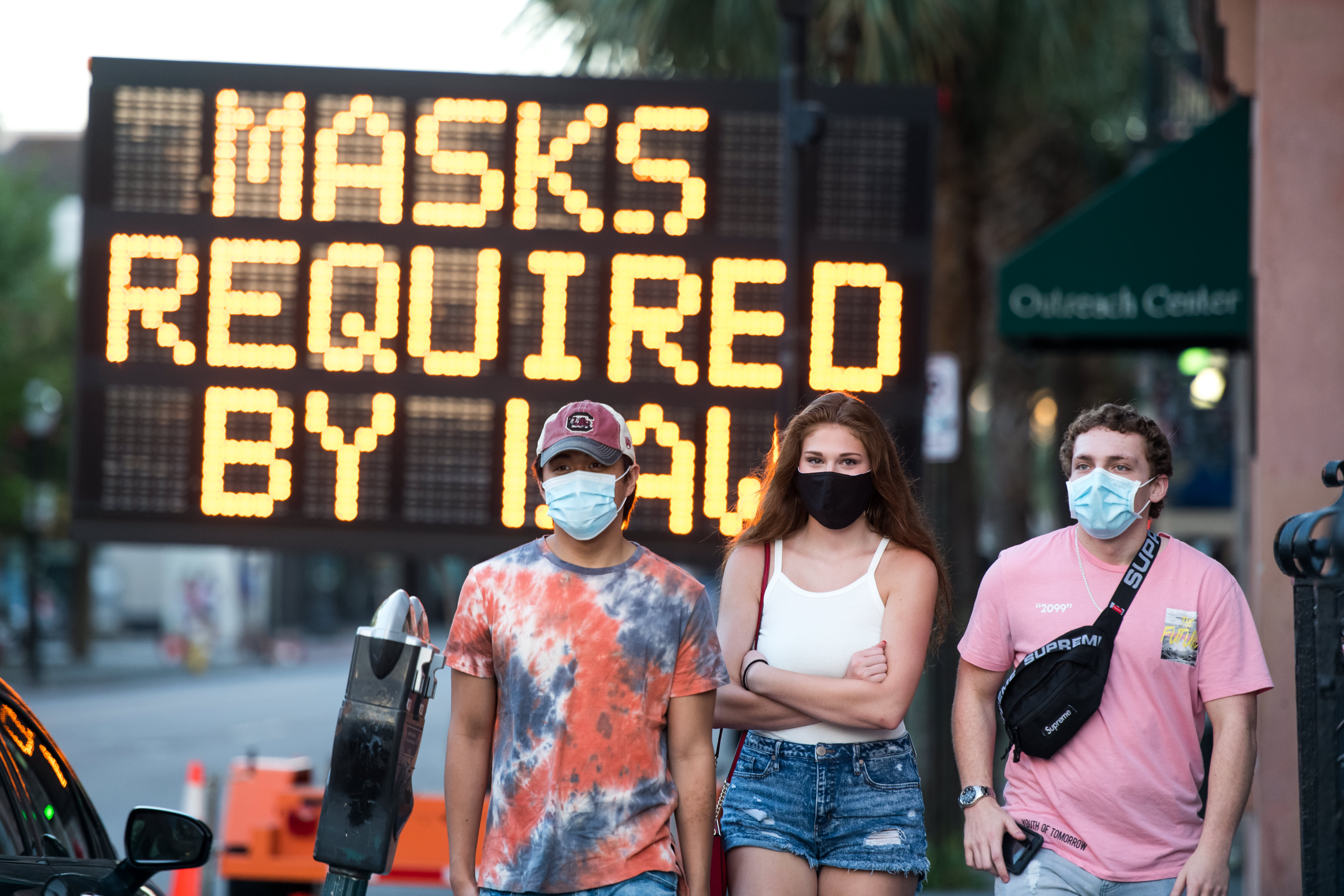
Americans vaccinated against Covid-19 cannot simply return to their pre-pandemic lifestyles, Dr. Scott Gottlieb on CNBC.
“It won’t be like it was in 2017 and 2018, when we didn’t care at all about catching a respiratory pathogen,” the former Food and Drug Administration commissioner told Squawk Box. “We’ll worry about it, even if we’re vaccinated.”
Still, he said, “I think we’ll care a lot less than we care now, hopefully.”
The new coronavirus emerged in late 2019 in Wuhan, China, and spread around the world, causing a total of about 86.6 million infections and more than 1.87 million deaths, according to data from Johns Hopkins University until Wednesday morning. The United States, amid another death toll, accounted for more than 21 million of these global cases and more than 357,000 of the deaths.
Gottlieb, who headed the FDA to the Trump administration from 2017 to 2019, compared possible post-coronavirus changes to life in the United States to flying on a plane after the September 11, 2001 terrorist attacks. For example, he said he believes, due to the pandemic, that public places can continue to do temperature tests. There may also be reluctance to “gather 50 people in a conference room with a capacity for ten,” he added.
“I just think things will be different, just like they will be different when you walk through an airport now after 9/11,” said Gottlieb, who is on the board of Pfizer, which manufactures a Covid-19 vaccine. . “I don’t think masks will be mandatory next fall and winter if we manage to increase the vaccination rate and if these new variants disappear or don’t prevail. But I think a lot of people will want to wear masks, and that’s fine.”
Gottlieb cited a couple of reasons behind his beliefs, including the reluctance of some people to get vaccinated against Covid-19, just as there is no universal seasonal flu vaccination. He also stressed that vaccines protect people from the development of symptomatic Covid-19, not necessarily because they will never be infected with the coronavirus.
“We’ll spend time answering this question completely, because we’ll depend on real-world evidence, but conventional wisdom … is that the vaccine will probably prevent some people from becoming infected and probably reduce the likelihood of them being infected. [from transmitting] the virus, “Gottlieb said.” What we don’t know is the magnitude of this effect. “
Gottlieb said he believes “if we do things right” in the U.S., in the fall and winter, the Covid-19 will have a less widespread problem than it does now. Instead, he said it may look more like a “very bad seasonal flu.”
“We’re still going to see people get sick. There will still be people dying of Covid next winter, but it won’t be an epidemic,” he said. “It will circulate. There will be outbreaks. Vaccinated people will have a substantial risk of having a bad result.”
Gottlieb’s statements followed a warning he issued Tuesday evening about the new strain of coronavirus circulating in South Africa, and told CNBC’s Shepard Smith that it is “very worrying” because it may have mutated in a way. which could limit the effectiveness of antibody drugs.
Outreach: Scott Gottlieb is a CNBC contributor and a member of Pfizer’s genetic testing start-up boards Tempus and Illumina biotechnology company. He is also co-chair of the Healthy Sail Panel of Norwegian Cruise Line Holdings and Royal Caribbean.